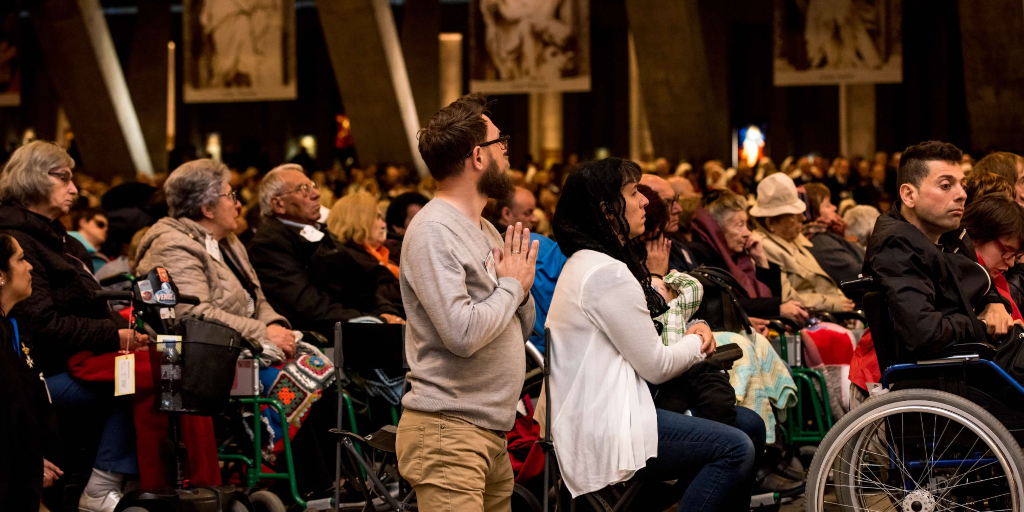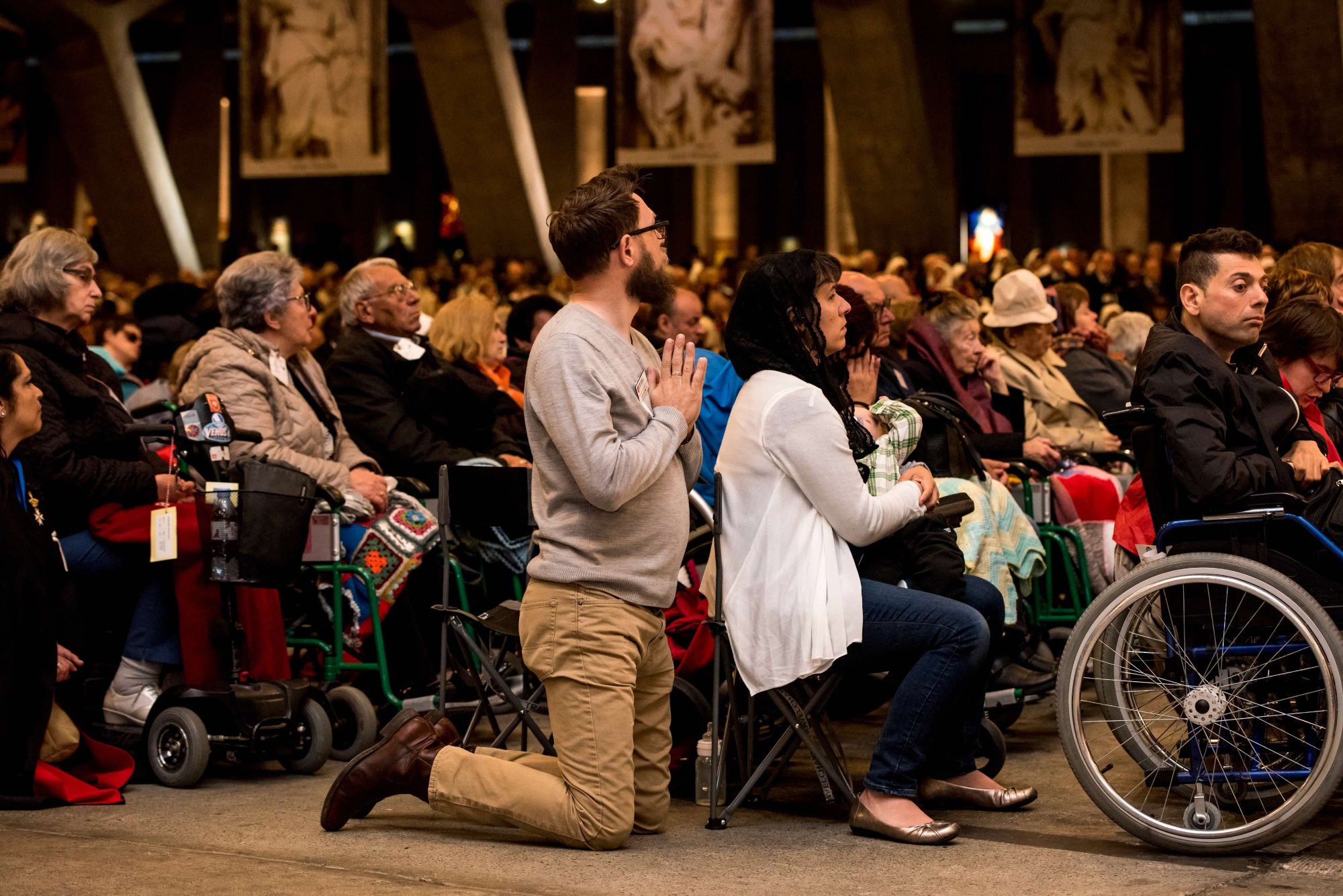
Christy Wilkens breaks down Pope Francis’ recent teachings on people with disabilities, noting the work we all have to do in welcoming them as a Church.
On December 3, Pope Francis marked the International Day of Persons with Disabilities with a profound statement, one that should be non-controversial but is still pretty revolutionary. He insisted that the disabled should not only be welcomed physically into the church, but should be embraced fully as equals, even embraced as catechists in their own right.
These words echo sentiments from the Directory for Catechesis, recently updated and republished by the USCCB in June. In that document, Pope Francis said that communities care for the disabled through “twofold attention” to their education in the faith and their formation as active ministers. He pointed out the presence of disabled people enriches the community, which “becomes more aware of the salvific mystery of the cross of Christ.”
Pope Francis doubled down on this summer publication in his December 3 statement, urging parishes to “build back better” by not just improving physical access to worship spaces, but reimagining the ways in which their disabled members participate in the liturgical life of the church. Referring to the parable of the house built on sand, he likened our throwaway culture of death to the stormy deluge threatening the house.
The first and most important takeaway from both the June Directory for Catechesis and Pope Francis’ December remarks is this: persons with disabilities must have access to the sacraments. Intellectual, physical, or emotional disabilities should not be considered barriers or disqualifying characteristics to the graces therein.
We as a Church have come a long way in this regard, but still, there are stories of families with disabled members (especially, more and more often, children with autism) struggling to find acceptance and accommodation in their parish’s Mass and traditional religious education settings.
It’s (relatively) easy to find space in the pews for someone in a wheelchair. It’s less easy to welcome and catechize a child who is perceived as disruptive to the “usual” Mass or RE experience. That mindset shift will take time, but it is happening and being discussed already in many places.

What happens less often: full inclusion as ministers. At my own parish, the altar and ambo are elevated on steps. Handrails were installed recently to assist elderly parishioners, but there is no ramp. There is no elevator to the choir loft. Parishioners with many disabilities are therefore effectively excluded from serving as lectors, Eucharistic ministers, acolytes, altar servers, or choristers.
I say this not to shame my parish. I love my parish. It is full of beautiful people and faithful priests who have welcomed, loved, and celebrated our disabled son.
But the fact remains: our parish is, like so many others, physically and liturgically inaccessible to people with disabilities … exactly the point Pope Francis was making.
People with disabilities and their families have an important role to play in the future of the Church. Not as noisome gadflies, but as heralds of a better tomorrow. We are one, single, holy Body of Christ, and these vulnerable members convict us of our complacency when we forget that ... as our son has done in our own family for five years now.
They call us to live out the gospel even more fully, where we already are. Just as missionaries work to win souls in places and communities that do not already know Christ, our disabled brothers and sisters evangelize and challenge those of us who already do, here, today.
Spend a little time looking around your parish this month, as we prepare together for the arrival of the tiny, powerless Infant Jesus. In what ways are you ready to welcome the weak, the disabled, the forgotten? More importantly, in what ways are you not? If you’re not seeing any disabled parishioners (even pre-COVID), ask yourself why.
And finally: what is Christ calling you to do about it?
Copyright 2020 Christy Wilkens
Image copyright 2017 Michelle Babyak. All rights reserved. Used with permission.
About the Author

Christy Wilkens
Christy Wilkens, wife and mother of six, is an armchair philosopher who lives in Austin, TX. She writes at FaithfulNotSuccessful.com about disability, faith, doubt, suffering, community, and good reads. Her first book, Awakening at Lourdes: How an Unanswered Prayer Healed Our Family and Restored Our Faith, a memoir about a pilgrimage with her husband and son, will be released by Ave Maria Press in 2021.


.png?width=1806&height=731&name=CatholicMom_hcfm_logo1_pos_871c_2728c%20(002).png)
Comments